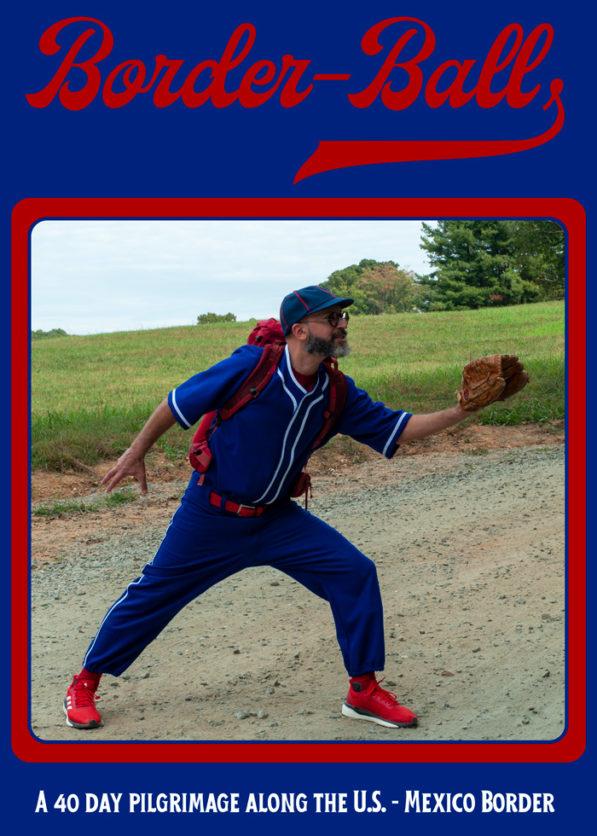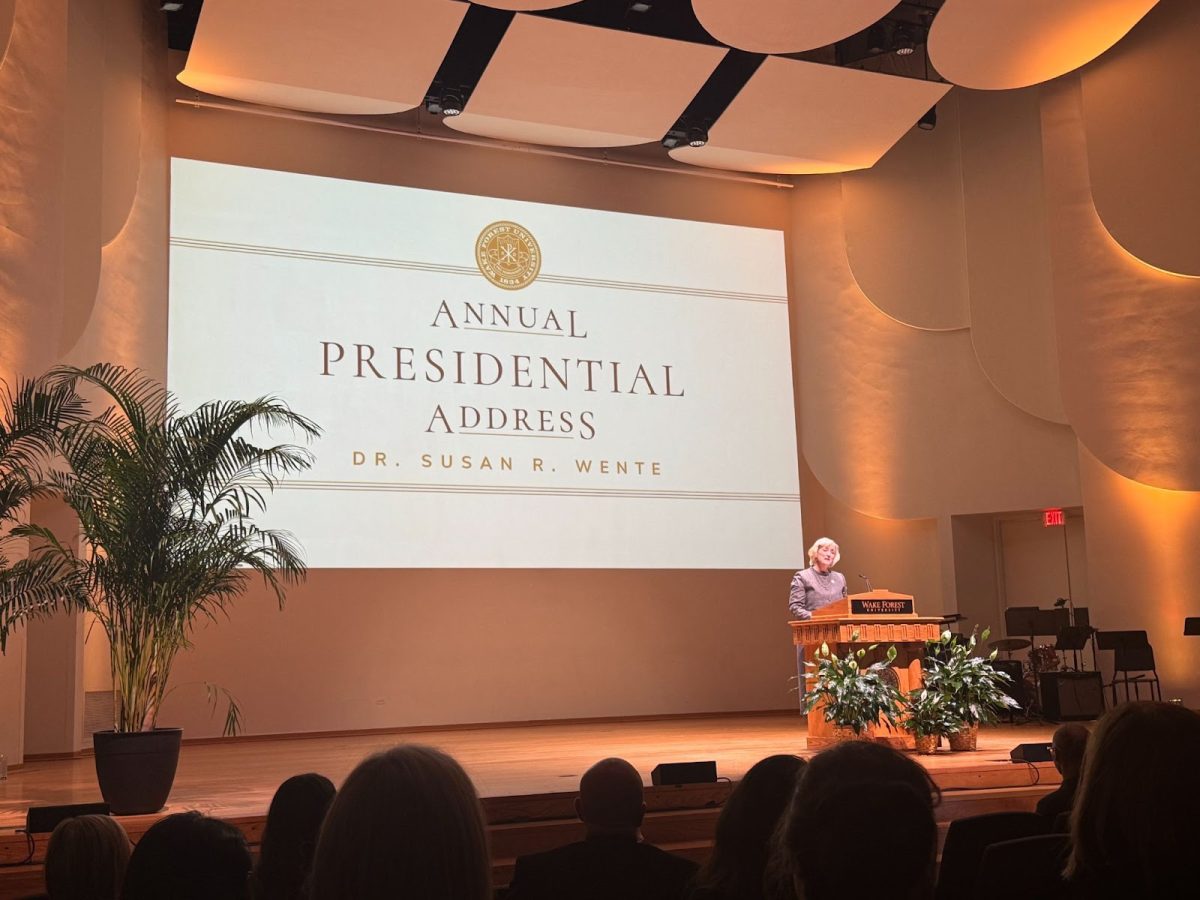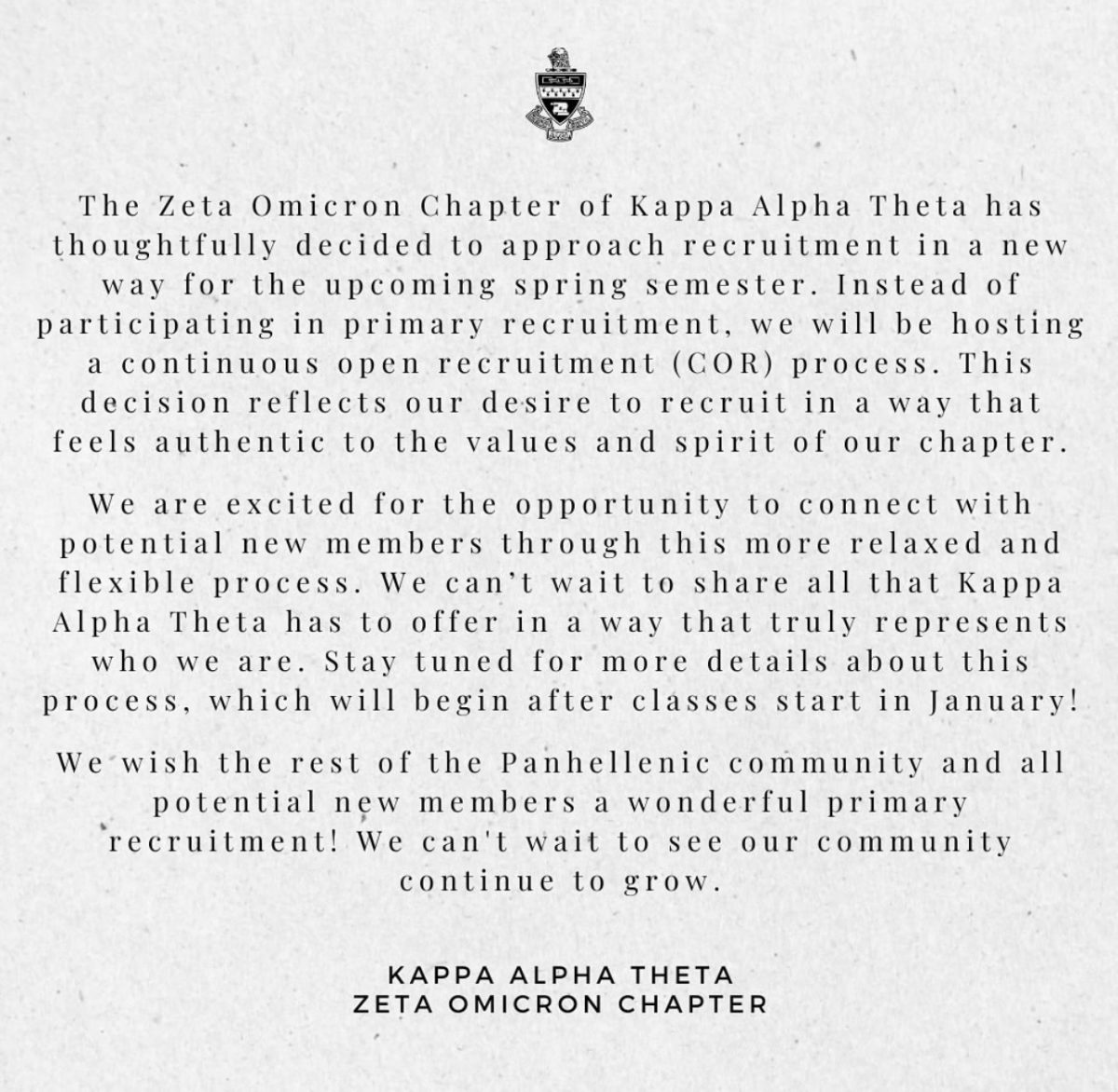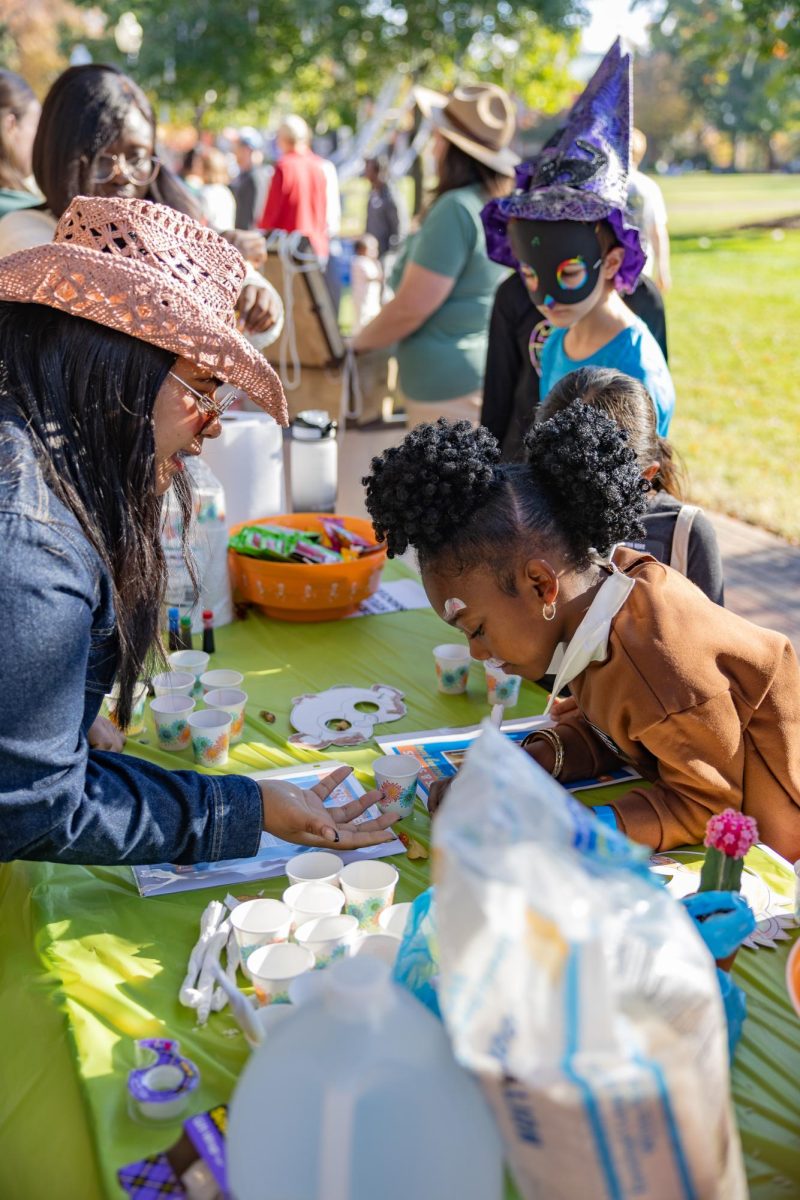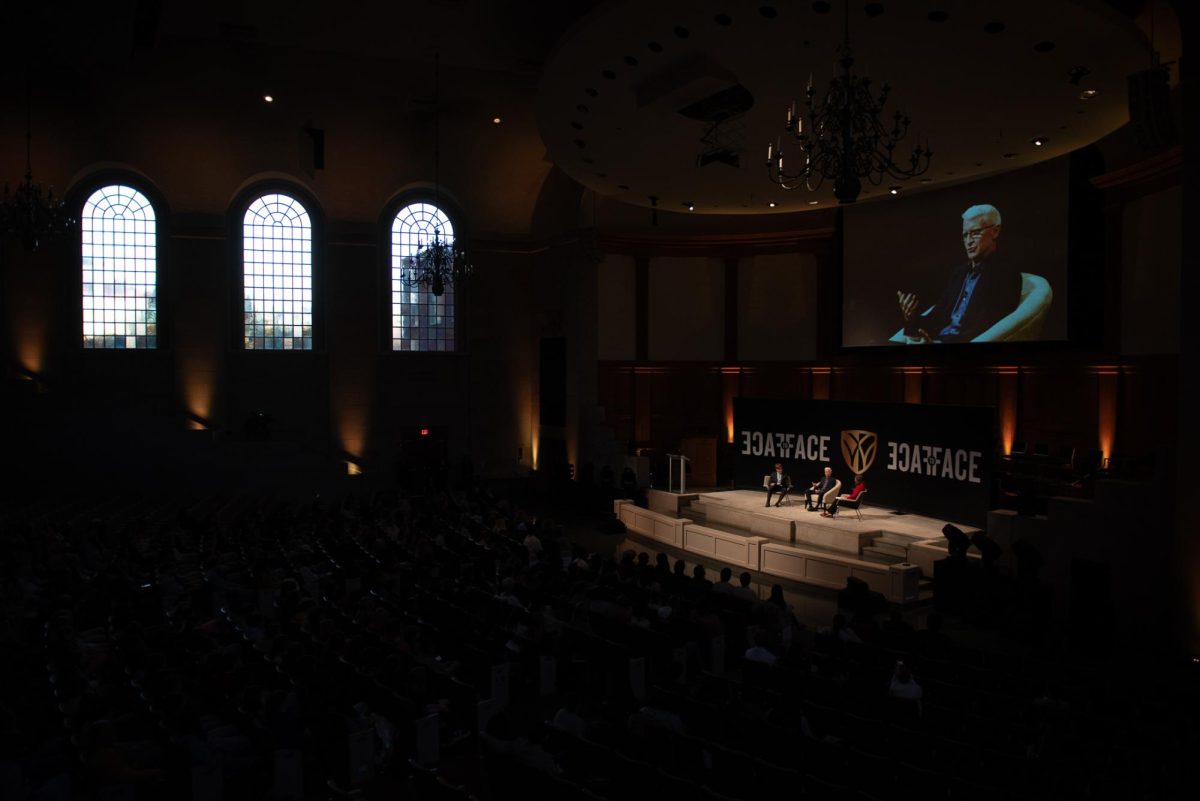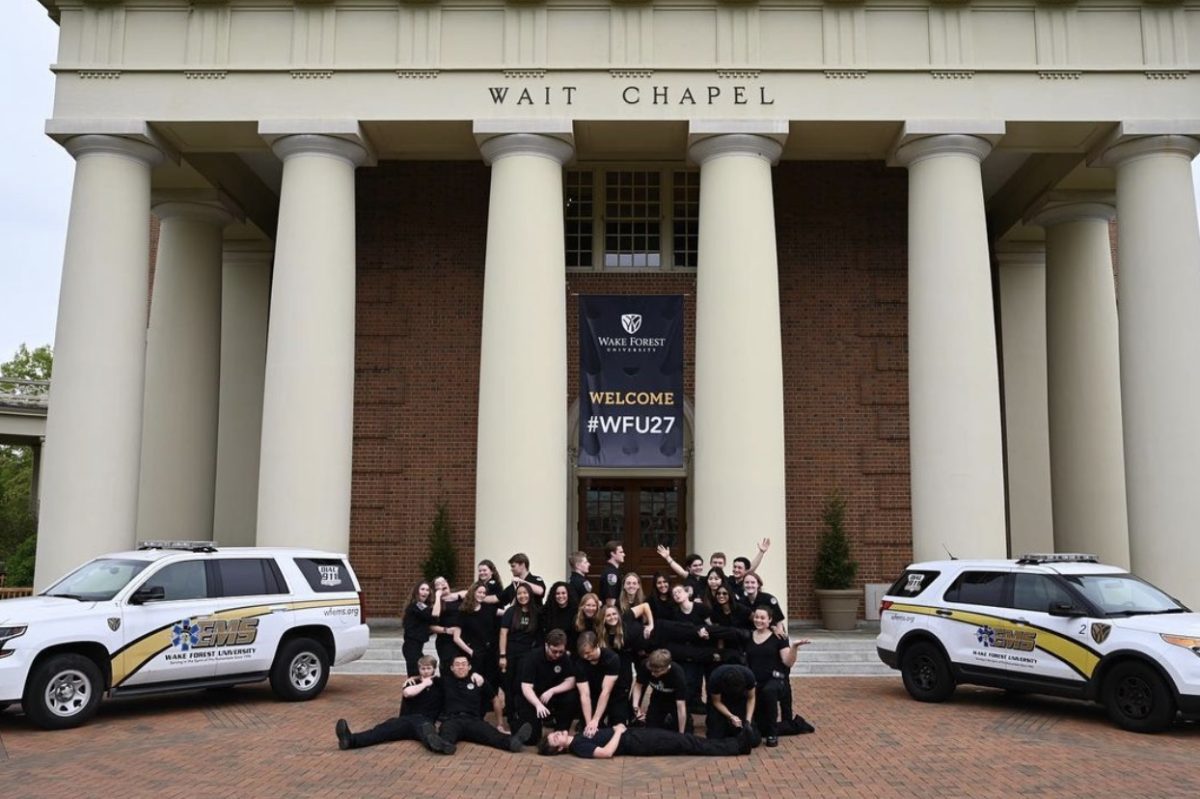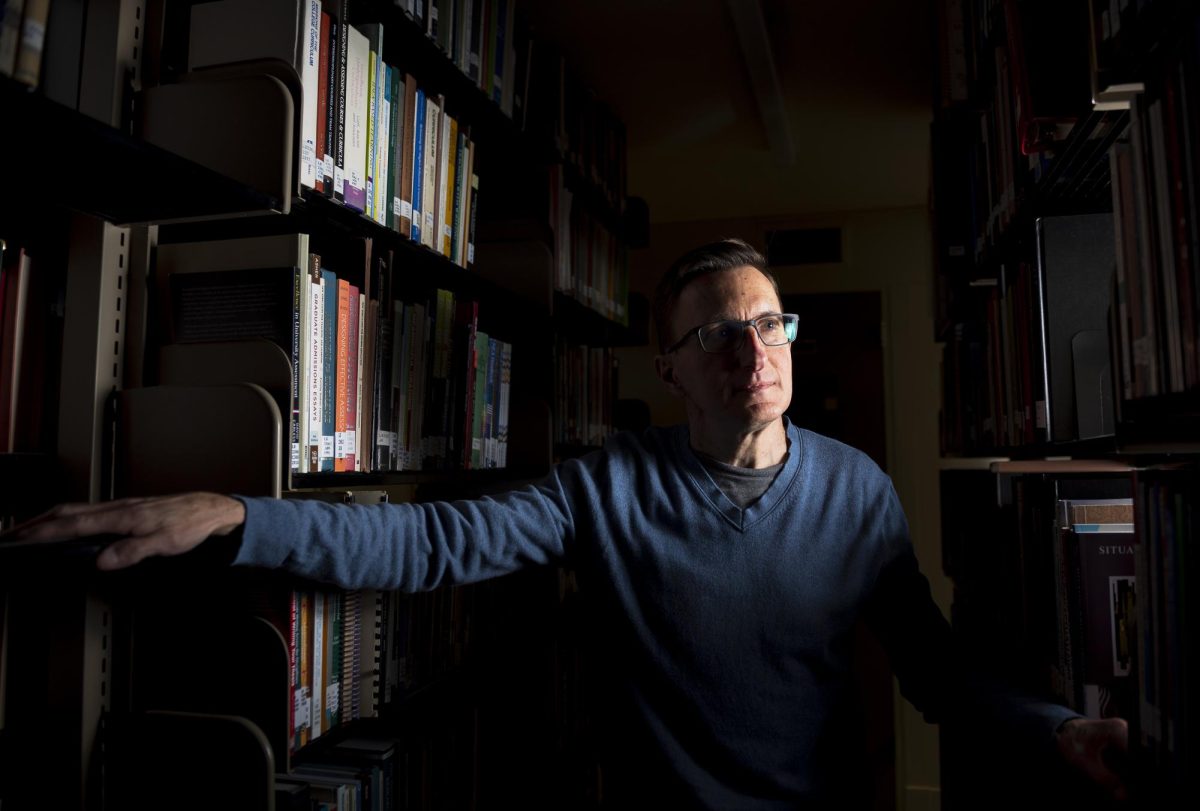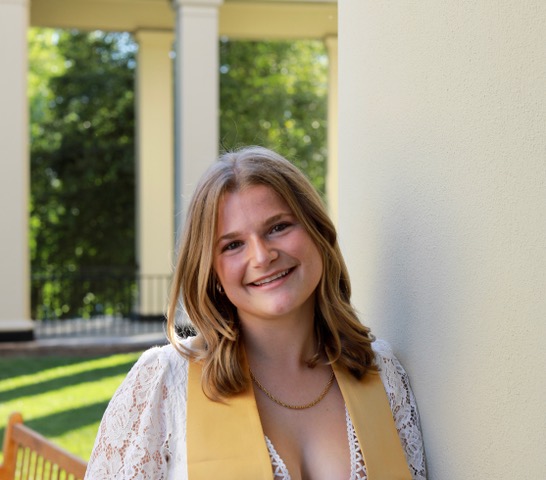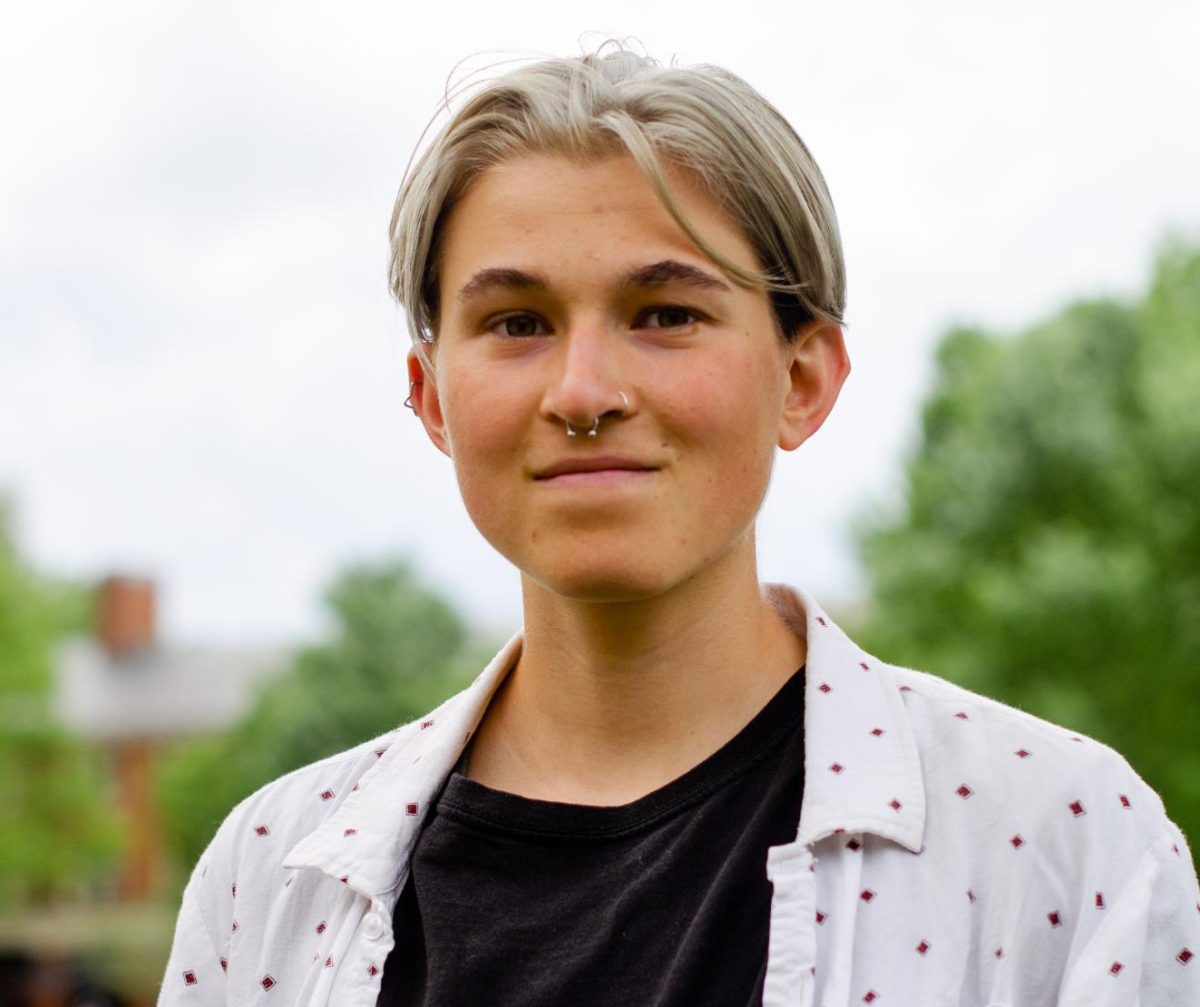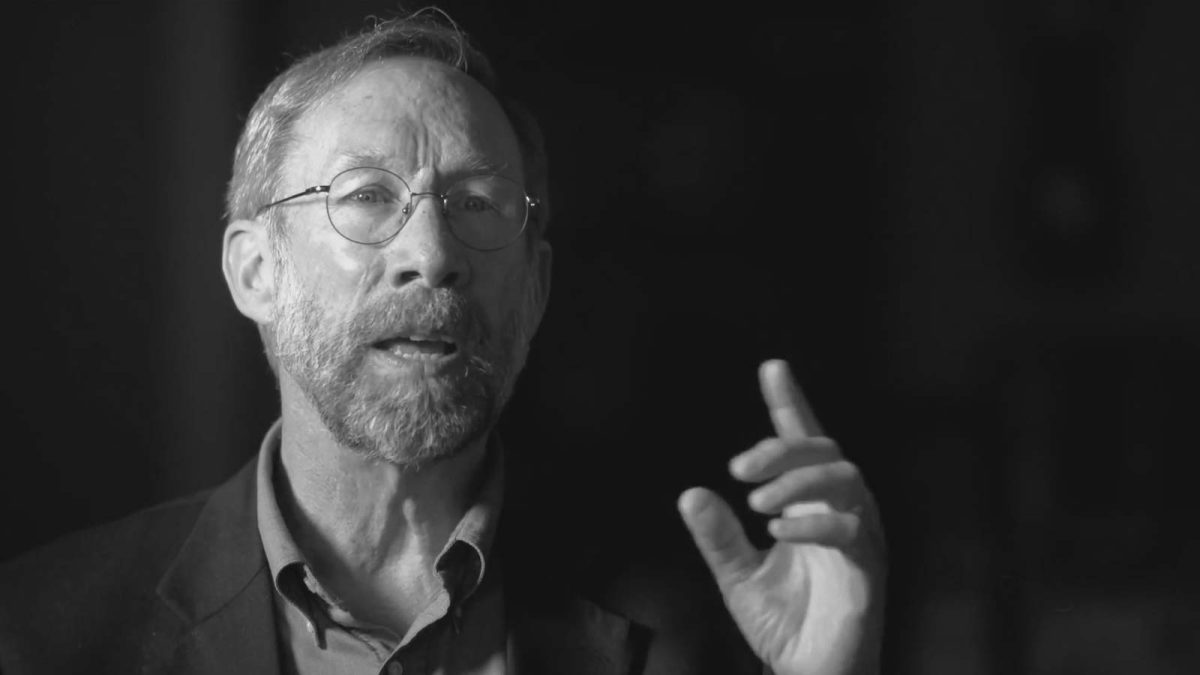Walking back and forth along the same seven-mile stretch for 40 days seems like an unimaginable feat.
But that is exactly what filmmaker, artist and associate professor Joel Tauber is doing.
Tauber, who teaches art and film, is currently wrapping up a 40-day project dedicated to forging connections and promoting unity along the border wall in San Diego, California. His walk began on Oct. 29 and will conclude on Dec. 7.
Clad in a vintage baseball uniform, he is approaching the people he meets to share stories and play coach, many of whom he will film. This project and the resulting film will be compiled into an art project entitled Border-Ball.
Can you tell me more about the route you are taking?
I’m walking for seven miles along the border wall from the Otay Mesa Port of Entry in San Diego and then up to the Otay Mesa Detention Center and back. I’m doing this every day for 40 days through Dec. 7.
I start at the pedestrian bridge at the port of entry at noon, and I interview people there and play catch with them until 1 p.m. Then I start walking. I’m meeting people and talking to them about the border, baseball, the detention center, the wall, immigration or whatever they want to highlight. We talk mostly in Spanish, because there’s a lot of people here on their way to Mexico.
I’ve been connecting with people, and we’ve been playing catch, which is even more beautiful than I anticipated.
Why did you choose certain specifics of your project, such as the 40-day length and baseball?
Our country is very religious in many ways. I don’t practice organized religion, but I believe in ethics and spirituality. Most of my work is based around ethics and environmentalism. This is precisely because I’m not sure if those things are as central as I feel like they should be, culturally and politically. I feel like everything has an ethical dimension to it, including how we think about the border. The 40 days taps into some Bible stories — 40 days spent going up to Mount Sinai, 40 years in the desert — I wanted to reference those things without specifically talking about them to foreground that this is it. This is something that should have an ethical dimension.
In terms of baseball: I believe it contains a lot of ideals that I feel our country embodies. There are certain ideals that we may have never reached; there’s racism in baseball, for example. The United States is far from perfect, too. There’s been racism, genocide and all sorts of problems. But, there are certain things about our country that I really love. To me, America is at its most beautiful and most strong when we think about and embrace how we really have embodied the idea of diversity. Baseball to me is a dream for our country. A dream of an endless green field, where we can all live and play together. So, I’m trying to bring that kind of open-heartedness down to the border, where we’ve perhaps become more closed. This is a patriotic act, an act of citizenship. There’s things that trouble me: how we are turning refugees away, how we’re locking up so many people in detention centers. This is not how I see America. I see America as a compassionate country, a country that embraces immigration. So, I’m wearing a uniform that is blue, white and red. I’m embracing the ideals that I think our country represents.
Is that why you play catch with the people you meet?
The act of playing catch with people who are strangers to me creates a connection. We’re doing that at the border, a place where our divisions are emphasized. Playing catch can help bridge the gap between different people. It is a repetitive action. We’re trusting each other and communicating with each other. We’re in another form of dialogue.
Are you at liberty to share a story from someone you have connected with?
Very early in the project, I was walking up to the detention center. It’s this big concrete thing, and it’s surrounded by barbed wire. It brings up lots of feelings for me. My grandparents on my father’s side were survivors of the Holocaust. My grandpa’s brother died in a labor camp. So when I see a detention center with people who are locked up, it’s upsetting.
I was tired when I got up to the gate. I sat down in front of the wall, and these people in a car came up and asked me if I was okay, and if I needed any help. That generosity and compassion just felt so beautiful to me. These people didn’t know me, but they were asking if I needed help — an act of citizenship.
There was a family in the car. There was a woman inside whose brother is locked up in that detention center and has been for the last six months. And she was asking me if I needed help. I explained to her what I was doing there, and she was deeply moved. She wanted to help and participate, though they haven’t been able to get in front of the camera because they were worried about their own papers.
Have all your encounters been this affirming?
I’ve been ignored many times. I’m sure there’s people who think I’m a weird guy. It is strange to be walking around in a baseball uniform. But weirdness is something that I embrace — it means we are thinking outside convention.
But mostly, people have been very affirming. I spoke with an older man who was an amputee. He shared his story with me, and he played catch with me anyway — he leaned against the wall with his crutches. We tossed the ball close to each other, and we hugged.
Is there anything the Wake Forest community can do to support you in your endeavor?
If they know people here that would like to walk with me and toss a ball that would be wonderful. They also can help spread the word about the project on social media.
My goal here is to raise questions. We should all think about what we can do to be even more compassionate, generous and openhearted to the people around us, and to reach out to people to see if we can help them. I think that follows the spirit of what Border-Ball is.


